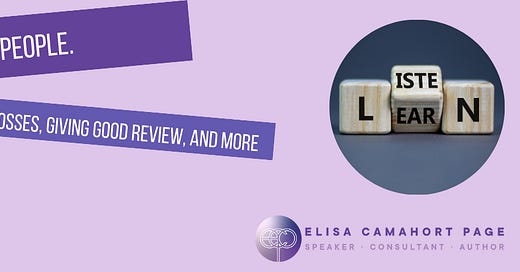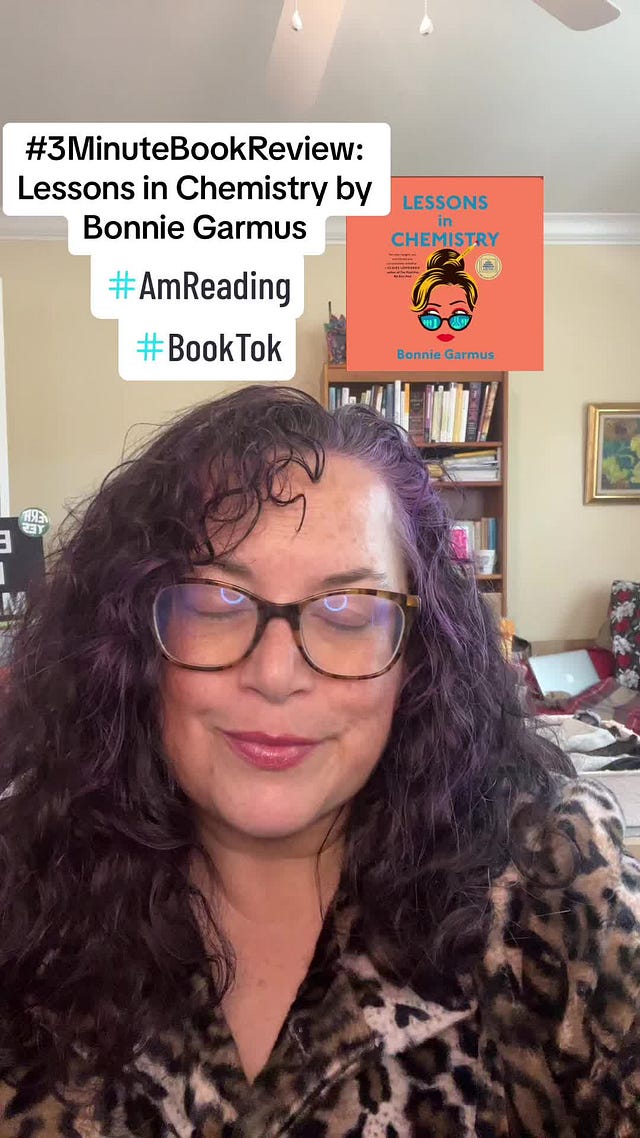Universal Basic Income: Because feeding your family has "meaning"
Rejecting the cruelty in empathy's clothing underlying qualms about UBI
When privilege defines “purpose” in the UBI discussion
This weekend I attended PolitiBeat, a first-ever political festival produced by the local non-profit news outlet in San Jose, San Jose Spotlight. (I’m a member, and I recommend you become one too if you live in Santa Clara County. I also recommend you seek out whether there’s a Spotlight-style outlet in your area if you live elsewhere and support it…local news is important, and dwindling.)
The first panel of the day was about Universal Basic Income (UBI) and featured city, county and state officials, plus a leader from a homelessness prevention organization in San Jose called Destination Home that I have supported for the last few years. They discussed local pilots and proposals around UBI and what we could learn from them. The panel shared some pilots for UBI that have focused on groups that are both high-risk and highly sympathetic…foster youth aging out of the system without a supportive family in place, families with small children, for example. BTW: A critical element of most UBI programs is that, while there may be criteria for who participates in the program, there are no requirements for how the money is spent. At its heart that is a conservative notion…that people know how to spend money best for themselves.
It was clear they were all at some level of support for the concept, so the panel was much more about exploring how this could scale and roll out more widely than about debating the idea at all. That is, itself, a huge movement into the mainstream for the UBI concept, and much as I did not support Andrew Yang as a candidate in 2020, nor even the specifics of his proposal to do UBI, I have to credit him for some of that movement.
[For reference, I asked ChatGPT to share with me UBI pilots that have happened or are happening in California, and it gave me this list.] These are official governmental pilots, but there are numerous organizations that implement some form of UBI for certain populations in need.
I’ve been interested in UBI for a while, before it was even called that, because as I lived through the dot.com bust I saw the drive to automate, offshore, and outsource full-time work. In addition I saw the accompanying drive to limit company ownership (via stock participation) to fewer and fewer shareholders, so that the wealth associated with ownership was being continually concentrated into fewer and fewer hands. So it wasn’t hard to project a country with fewer jobs at all levels available, and those that were available having less potential for wealth upside.
It seems obvious to me, though, that more people should benefit from the wealth generated by companies leveraging infrastructure paid for by all taxpayers. The equation of fewer and fewer significant shareholders + Wall Street incenting ever-increasing corporate profit over all other possible goods (which is not the definition of capitalism, BTW, go read The Man Who Broke Capitalism by David Gelles!) = greater inequity and greater unfairness and greater social instability. This isn’t some wild idea. Right now Alaska residents get an annual dividend originally tied to oil industry profits.
I was also really compelled by data I heard a few years ago from the aforementioned Destination Home: As part of their program to help people avoid becoming unhoused in the first place, the typical dollar amount required was ~$4000-5000, which could help them bridge an unexpected expense or a gap between jobs. The typical amount spent by the city and county on services for someone who has become unhoused exceeds $30,000 a year. I mean, do the math if you’re not moved enough by the ethics of the richest country in the world (and among the richest counties) having a significant poverty, hunger, and homelessness problem.
[I really urge checking out Destination Home’s resources around homelessness. I am endlessly frustrated that even people who would consider themselves nice and liberal confidently aver that the unhoused are mostly tweakers/addicts or mentally ill people who don’t want housing, because those are the maybe 100 folks they see around downtown San Jose…when there are 10,000 unhoused people in our county. Living in cars or on couches, working jobs, going to school. Destination Home pursues a “Housing First” approach, because as they succinctly point out: Housing ends homelessness.]
Anyway, the panel was thoughtful, informative, inspired hope, and chock full of common sense.
It was followed by an interview with San Jose’s new mayor (as of 2022) Matt Mahan. Full disclosure: I attended a pre-primary event in a neighbor’s backyard for Mahan and did not come away impressed. That’s a whole other story. But his comments at the time on our homelessness crisis troubled me. When you say, “Oh, no no no, I don’t want to criminalize being homeless, BUT…” you’re going to lose me. I was deeply disappointed that Mahan won over a longtime progressive public servant (and Latina woman leader) and I’m probably going to work harder to support his opponent in 2024.
Most recently before this event, Mahan has caught a lot of flak for wanting to allocate Measure E funding away from permanent supportive housing development to temporary shelters and interim solutions, despite what the voters clearly supported when passing the measure and also proposed “banning” homeless people in certain parts of the city (sounds like criminalizing them to me).
When asked about UBI, he made generically supportive comments about exploring all options and interested in seeing the results of the pilots, and so on, but then he followed with a statement that he didn’t want UBI to take the place of residents working for a living. Because people don’t just need money, they need a sense of purpose and meaning.
And my head near about exploded.
No one said UBI should replace working. No one’s talking about providing UBI that even approaches a minimum wage job…which, in case you were wondering, is not considered a living wage in my area.
From his place of privilege, Mayor Mahan probably doesn’t realize how much hard work and time and mental energy (and exhaustion) is involved in substinence living. He should read Nickel and Dimed as just a start.
For people who are struggling, there is tremendous meaning in having a roof over their head, food on the table, and medications at the ready. Get that taken care of and you can start to have a discussion about whether they feel fulfilled with other purpose and meaning.
This kind of remark purports to be filled with empathy for a person’s spirit, but it’s such bullshit. Gross inequity is bad for a person’s spirit. Lack of opportunity is bad for a person’s spirit. The steady decline of affordability is bad for a person’s spirit.
I could go on.
I’ve talked about this before: We basically instituted a form of UBI during the early days of the lockdown, with increased unemployment benefits available for all, even those who were self-employed, as I was.
The result for some was that they started thinking about purpose and meaning outside the underpaid back-breaking work they were doing. They started to think about and act on doing something different, something better.
I think funding support for more people to be able to think about that kind of purpose and meaning is the exact opposite of what the folks who purport to be concerned for our sense of purpose and meaning really want.
So spare me.
Do you have thoughts on UBI? I would love ot hear them.
What else is going on?
The Op-Ed Page podcast
Episode 91 featured some thoughts on people management from me. Inspired by recent events (that I observed, not experienced). So many folks get thrust into managing people, and rarely get the support they need to be good at it. And we know, don’t we, that people leave managers, more than companies? I cover a few choice topics, including:
Learning from your bad bosses, not just your good one
Delivering good performance reviews
My three guiding principles for people management
Take a listen, and if you enjoy please share, subscribe, etc. I’d love to know your guiding principles around people management!
#3MinuteBookReviews
My book club meets tomorrow, and this is the book we’re discussing. I guess I buried the lede in this video that I really liked the book. But even more important: I urge you not to judge this book by its cover, because you will be triggered with a capital ‘T’ if you do!
Until next time, please leave a comment and let me know your thoughts on any or all of the above. This is basically my blog now! And as always, I appreciate a share of this newsletter or my podcast.
If I can help you break through the things that are keeping you stuck (or if you are intrigued by the idea of securing my fractional leadership for your initative), set up your first introductory 30-minute consult for free by booking it in my Calendly. And you can always check out my new LinkedIn Learning Course, Telling Stories That Stick, a 57-minute course on crafting your stories for different audiences (media, investors, prospects, hiring managers) and making sure those stories stick…and convey exactly what you hope to convey.







This is an important topic. Growing up with conservative parents (and grandparents) has instilled these voices in the back of my otherwise politically progressive adult mind. They whisper all their assorted concerns about UBI: whether it might reduce the willingness to work, or whether prices in the world will simply adjust up if everyone has more money. But at the same time I can also hear the war in my conservative father's head - as he grew up incredibly poor and despite his old fashioned republican values, he did agree that there needs to be a safety net. It is a tricky path to establish how to address needs so that lives are definitely improved in a sustainable way.
Making a living as an artist has been quite a roller coaster over the last few decades - there have been years where money has been no issue, and there have been periods where I struggled with rent and money for food. One thing I have learned is that I make better decisions when I am not concerned with basic needs. If I know that I have a home and food, that means I can think bigger and further out. I have time for education and have a better capacity for finding the best sort of work for my skill sets. Having some sort of UBI for those falling through the cracks will lift all of us, even if we are not direct beneficiaries of the UBI.
I volunteered one rainy morning with handing out bottled water to residents of skid row in Los Angeles. I was a little nervous and feeling a little awkward... hyper aware of my 2018 BMW amidst the poverty. I did not find addicts and tweakers. I found people who could not afford the high cost of housing in LA. There is far too much disparity between the very wealthy and the poor within our society. I am hopeful that increasing discussion of UBI opens minds as the general public becomes more familiar with what it is. I think that is the key... to promote discussions of it within public forums so that it becomes less of a novel idea.
Your words teach... Not just the technical elements, but the soul ones as well. You graciously put words to what a lot of us (mostly) think but don't know quite know how to articulate -- and that is a gift to us. Thank you.